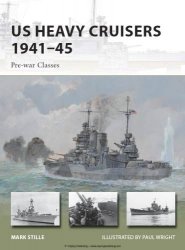Although the immediate threat of invasion appeared to have
Passed as the autumn of 1940 approached, the change in season did not bring about an end to the arrival of enemy spies. In fact, as the Germans switched their tactics from invasion to air bombardment and U-boat blockade, it became even more imperative for them to have spies working in the United Kingdom. Although aerial reconnaissance might reveal something of the damage being caused by air raids, the effect of bombing and blockade on civilian morale could be accurately gauged only by people on the ground. other than sympathetic staff working in neutral foreign embassies, notably the Japanese and Spanish legations, the only other means of gauging this information was from spies.
On 30 September there was report of another landing, this time on the east coast of Scotland. Two suspects — a man and a woman — turned up at Portgordon railway station shortly after 3am, dripping wet. As a precaution against invasion, all railway station signs had been removed, and the two strangers were forced to admit to the stationmaster that they had no idea where they were. The stationmaster sold them two tickets to Forres and then reported them to the local police station.
The two suspects were taken in and questioned. They gave their identities as Vera Erichsen, a Dane, and Franziskus de Deeker, a Belgian. They claimed to have travelled up from London on a visit, but then quickly retracted this, saying they were refugees from the Nazis who had sailed from Bergen in a fishing boat 12 days before. The police were not impressed and searched the couple’s baggage. In Deeker’s bag they found a two-way radio set, a loaded revolver, a cipher disk and a list of locations that included RAF bases.
A short while later an inflatable dinghy was found on the shore. It appeared to be the type used by the Luftwaffe, indicating that it might have been carried by a seaplane and was large enough for four passengers. A manhunt began for the other spies.
At 6pm a porter at Waverley station, Edinburgh, contacted the police saying that a man with a wallet stuffed with banknotes had deposited a suitcase that was wet and had sand and seaweed on it. The man said he had come from Aberdeen and would be back later that day to pick up the case.
The police put the station under surveillance and when the man returned and offered his luggage ticket, the police pounced. In the struggle the man tried to pull a Mauser pistol from his pocket but was overpowered.
A search revealed a Swiss passport in the name of Werner Heinrich Waelti, ?195 cash, maps of the east coast, a compass, codebooks, a cipher disk, graph paper and a wireless transmitter. Waelti feigned surprise at the find — the police did not.
The three suspected agents were quickly transferred to Camp 020. Interrogations proved complex and tiresome and there appeared little opportunity to use the spies for double cross work. Through information given by Tate and Summer, the group were definitely linked to the Rantzau (Ritter) stable. Vera Erichsen claimed she had been married to Dierks, the first Abwehr controller of Snow. In reality it appears the two were lovers after Dierks walked out on his wife — in any case their romance had recently been ended by Dierks’ death in a road accident.
While the interrogations were taking place, there was an intervention from 10 Downing Street regarding the handling of spies. On 7 October Lord Swinton asked why none of the captured spies had been brought to trial and shot. Liddell explained to Swinton that his understanding was that MI5 had been given a free hand to grant the life of a captured spy in return for information. Swinton took exception to this omnipotent attitude and instructed that no one was to be offered their life without his express authority. This put Liddell’s nose out of joint. He rather snottily recorded in his diary that he was not sure what rank Swinton held, but that he appeared to think he was head of both MI5 and MI6. Liddell should have remembered that, with the Prime Minister’s backing, Swinton technically was just that.
But in the circumstances, Swinton’s attitude is perhaps understandable. As 1940 was drawing to a close, any sign of British success against the Germans was good news. Therefore on 24 October the four Brussels spies — Meier, Waldberg, Pons and Kieboom — were sent from Camp 020 to stand trial for espionage under the Treachery Act at the Old Bailey. Somewhat unexpectedly, Pons was found not guilty after he argued that he had been coerced into becoming a spy. There was a certain irony in the fact that Pons, who had earlier been reported as being shot, was the only one of the group not to receive a death sentence.
While Pons was interned for the rest of the war and handed over to the Dutch authorities at the end, Meier, Waldberg and Kieboom were executed at Pentonville Prison. First to the gallows were Waldberg and Meier on
10 December. Kieboom appealed against his sentence, but then changed his mind. He followed his comrades to the gallows seven days later.
The case of the Brussels spies was fed to the press, although no mention was made of Pons, and only the three condemned men were exposed. Photographers were even allowed to snap the spies’ equipment to increase publicity and demonstrate to the population at large, albeit somewhat ghoulishly, that the security services were doing their job.




 World History
World History









